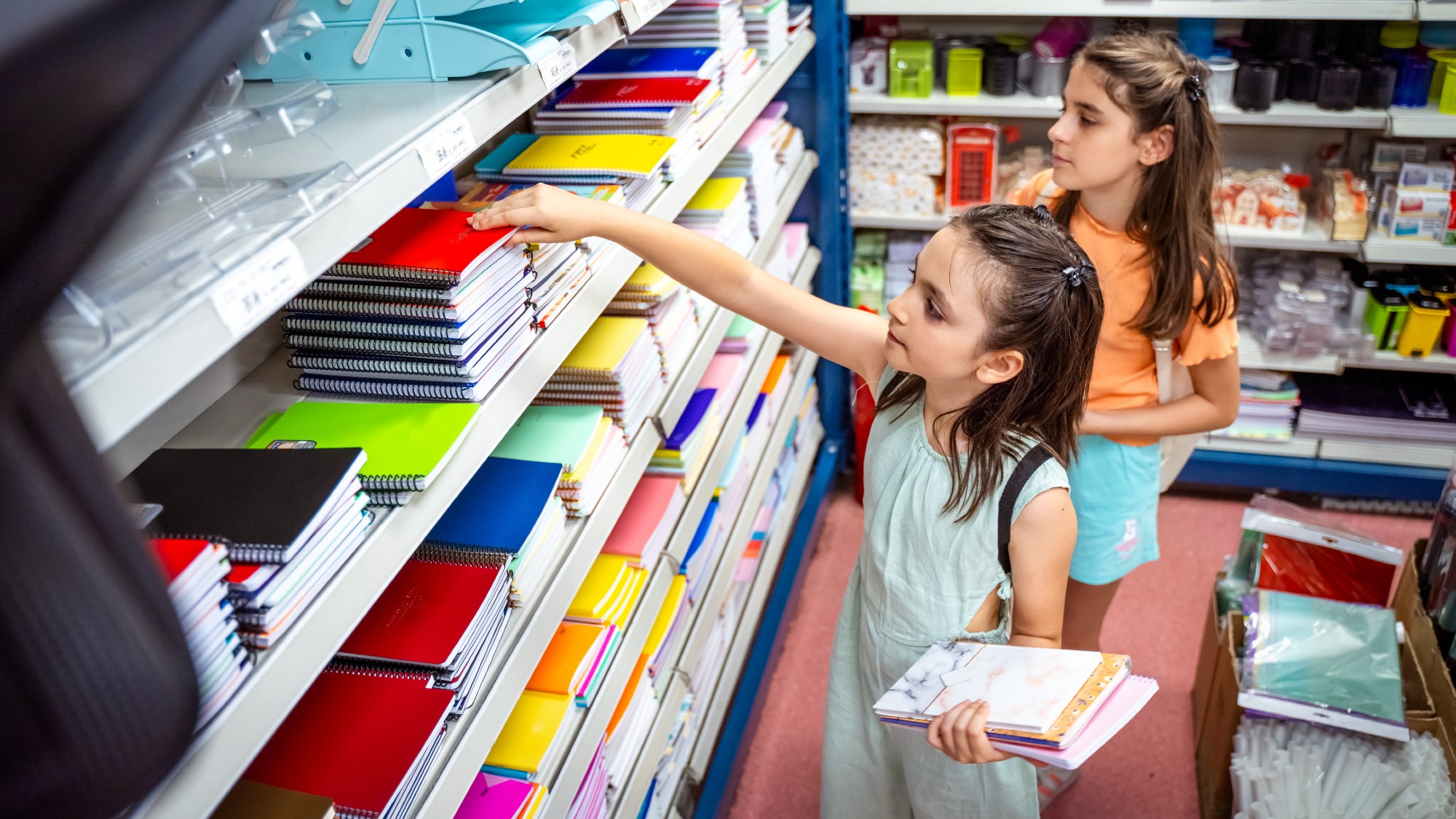5 tips to save on back-to-school shopping
Kids will soon be heading back to school, which can mean a major shopping bill for parents


A free daily email with the biggest news stories of the day – and the best features from TheWeek.com
You are now subscribed
Your newsletter sign-up was successful
Believe it or not, the return to school is right around the corner for kids. While this may come as a welcome relief for parents, it also can mean a major shopping bill.
This back-to-school season, "American families with kids from elementary to high school are expected to spend an average of $875 on back-to-school items, according to the National Retail Federation's annual back-to-school survey," said NPR. That's a pretty penny — but there are some ways to make this year's seasonal shopping trip a little easier on your wallet. You can save while still getting your kids everything they need for the school year ahead using these five tips.
1. Plan ahead and spread out shopping
Instead of going down the list without thinking twice, "set a budget for back-to-school shopping before you go to stores, then figure out how much you can spend for various items on the list," said Consumer Reports. It is also smart to "do a quick inventory at home, too, to make sure you're not stocking up on things like pens and pencils when you already have a decent supply."
The Week
Escape your echo chamber. Get the facts behind the news, plus analysis from multiple perspectives.

Sign up for The Week's Free Newsletters
From our morning news briefing to a weekly Good News Newsletter, get the best of The Week delivered directly to your inbox.
From our morning news briefing to a weekly Good News Newsletter, get the best of The Week delivered directly to your inbox.
Before you hit the stores, keep an eye out for sales and take some time to comparison shop to see where you might be able to get the best deals. Often, this is easier to do if you spread out shopping. "Rather than make one massive shopping trip, selectively pick up on-sale items in any given week," said NerdWallet. This also "spreads out the hit to your budget."
2. Take advantage of tax holidays
Depending where you live, you might also score some savings if you wait to make your purchases on sales tax-free shopping dates. "Several states have tax holidays that coincide with back-to-school shopping time," said NerdWallet, and "depending on your state, that could translate to as much as 7% savings on your purchase."
Just "keep in mind that every state has different restrictions" — "some have limits on how much you can purchase tax-free, while others have rules about which items qualify, and they all hold these tax holidays at different times," said Consumer Reports.
3. Look into student discounts
While you may already have your eye out for sales, one discount opportunity you may be overlooking is student discounts. "These discounts are usually intended for higher education students, though they sometimes extend to grades K-12," said CNBC Select. Plus, "plenty of retailers and brands run special promotions for students this time of year," said Consumer Reports — and some are even yearlong.
A free daily email with the biggest news stories of the day – and the best features from TheWeek.com
You can search online to "find lists of stores of all categories that will mark off items if you flash your student ID," said CNBC Select, with some examples being "Apple, Microsoft, H&M, Madewell, American Eagle and Goodwill."
4. Coordinate with other families to buy in bulk
Another hack to save on back-to-school shopping is "buying in bulk, often at wholesale stores like Costco, Sam's Club and BJ's," said NPR. Particularly if you have a big family, "for nonperishable items like pencils, stocking up can help save money long term."
But this approach can work for smaller families, too. "The parents of your kid's classmates may want to join forces to buy certain supplies," said NerdWallet. In particular, "this approach works well for classroom supplies like tissues, plastic storage bags and hand sanitizer."
5. Buy used or refurbished
Not everything you get for your child's school year has to be new. Consider buying some stuff used or refurbished, because "whether you're shopping for textbooks, electronics or clothing, you'll pay less this way than if you were to buy the item brand new," said CNBC Select. You may even be able to find "discounted items in 'like new' condition."
For electronics, you can consider retailers like Amazon or Best Buy, while sites like Mercari and Depop are good for snagging used clothes. Another option is to "source school supplies, clothes, jackets and more from thrift stores or resale sites like swap.com," said NerdWallet, and with "your local Buy Nothing Project group on Facebook or the BuyNothing app," you can "request and give away things for free."
Becca Stanek has worked as an editor and writer in the personal finance space since 2017. She previously served as a deputy editor and later a managing editor overseeing investing and savings content at LendingTree and as an editor at the financial startup SmartAsset, where she focused on retirement- and financial-adviser-related content. Before that, Becca was a staff writer at The Week, primarily contributing to Speed Reads.
